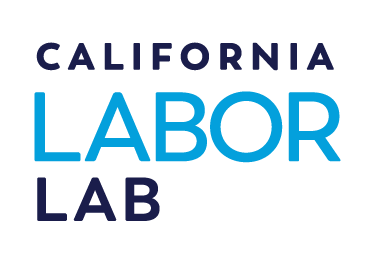
The Stealthy Thief: Manifestations of Indirect Wage Theft and Lived Examples
By Alicia LaFrance, MPH, MSW
September 20, 2023
Wage theft is an issue that silently plagues the modern workforce, robbing hardworking individuals of their rightful earnings. A recent survey conducted by the California Labor Lab revealed that in the past 12 months, 13% of workers in California reported experiences where they anticipated payment for their work but never received it or received less than they expected. Survey respondents who indicated having alternative and contingent employment arrangements were significantly more likely to report this experience.
But there is a more insidious form of wage theft that lurks in the shadows: indirect wage theft. While incidents of wage theft may seem obvious, they often go unnoticed by workers themselves. In this blog post, we shed light on a few manifestations of indirect wage theft, and present real-life illustrations from a series of interviews the CA Labor Lab conducted with worker organizers and union leaders in 2022.
Multiple faces of indirect wage theft
Indirect wage theft operates discreetly, taking advantage of workers through systemic practices and neglectful or even exploitative policies. Moreover, wage theft may especially impact workers whose direct connection with the ultimate employer is separated by multiple layers, or those who are in gig or app-based roles. A few examples of this include:
Exploitative work arrangements: work arrangements that are exploitative can look like workers earning an inadequate share of the profit for their work or instances of incurring exorbitant work-related debts. In an interview with the CA Labor Lab, Nicole Moore, both a rideshare driver and president of Rideshare Drivers United revealed that, on average, California rideshare drivers are getting paid less than minimum wage after expenses, depreciation, and nonpayment for wait time are taken into account. Moreover, some drivers opt to rent their vehicles directly from the driving companies. This practice sometimes leads to an unexpected scenario where, by the week’s end, drivers’ paychecks display a negative balance—a phenomenon she described as akin to historical sharecropping practices.
Employee misclassification: this often takes the form of employers categorizing their workers as independent contractors, which allows them to avoid providing benefits, overtime and sick pay, skirting the laws designed to protect workers. Not only does worker misclassification deprive workers of their rights, it also plays a role in shifting the burden of occupational health risks to workers.
In an interview, we heard from Yardenna Aaron, an authority on misclassification and janitorial work practices. Aaron serves as the executive director of The Maintenance Cooperation Trust Fund (MCTF), a California watchdog agency operating throughout the State to eliminate illegal and unfair business practices. Aaron explained the consequences of misclassification of janitors during the pandemic. Despite their crucial role as an essential workforce, many misclassified janitors lacked access to protections such as PPE and benefits such as paid sick leave due to their employee status. Consequently, a number of them suffered significant health repercussions. A 2021 study conducted by MCTF underscored the challenges faced by this workforce during the pandemic, revealing that tragically, some even lost their lives due to inadequate workplace safeguards.
Tip theft: a lack of clarity from employer about the amount of tips their workers have earned may be indicative of mismanaged or stolen tips. Maria Moreno, who worked as a lead organizer of the Restaurant Opportunity Center United, spoke to us about the ways restaurant employers manage tips in both exemplary and unscrupulous ways. In instances where employers judiciously allocate the tips, they provide a transparent breakdown of the distribution among restaurant staff. Moreno noted that there are a few employers who adopt a commendable democratic, worker-led strategy, granting employees a voice in tip distribution. Conversely, in instances of questionable tip practices, employers exhibit a lack of transparency and communication, leaving staff uninformed about the tip allocation.
Uncompensated labor: In this situation, employers impose additional job responsibilities, tasks, or hours on employees without a corresponding increase in pay or benefits. During an interview, Andrew Gaitan, the Regional Vice President of a union representing janitorial staff in California, provided insight into this issue. Gaitan outlined how employers reduce janitors’ wages by imposing heavier workloads. For instance, about thirty years ago, the prevailing industry norm for a State government janitor would be to clean no more than 1,900 square feet per hour. Nowadays, it's increasingly common for workers to handle the cleaning of approximately four times that amount of square footage. The impact of the increasing workloads can be dire, including violations in child labor laws, because it incentivizes workers to engage family members to helping complete work tasks.
Defenses against wage theft
An important part of defending against wage theft is raising awareness at the individual and societal scale. Because of the insidious nature of wage theft, it is crucial for workers to know their rights, connect with worker groups or labor unions, and consult with local resources if they suspect something isn’t right. On a broader societal scale, an essential approach to combating wage theft includes tackling identified issues from a policy approach. This aligns with the mission of the Labor Lab, as it endeavors to document the extent to which new and often more vulnerable forms of work are being used, gauging their effect on health, and partnering with workers, employers, and policymakers to mitigate these effects.
Further information and resources:
- California Department of Industrial Relations: Examples of wage theft and resources for filing a wage claim
- Legal Aid at Work: Misclassification of Employees As Independent Contractors (fact sheet) and Wage Protection Resources (multilingual)
- KQED news article: Most Fast-Food Workers Are Victims of Wage Theft, Survey Finds
- California Labor Lab blog article: Resources for Bay Area Workers
